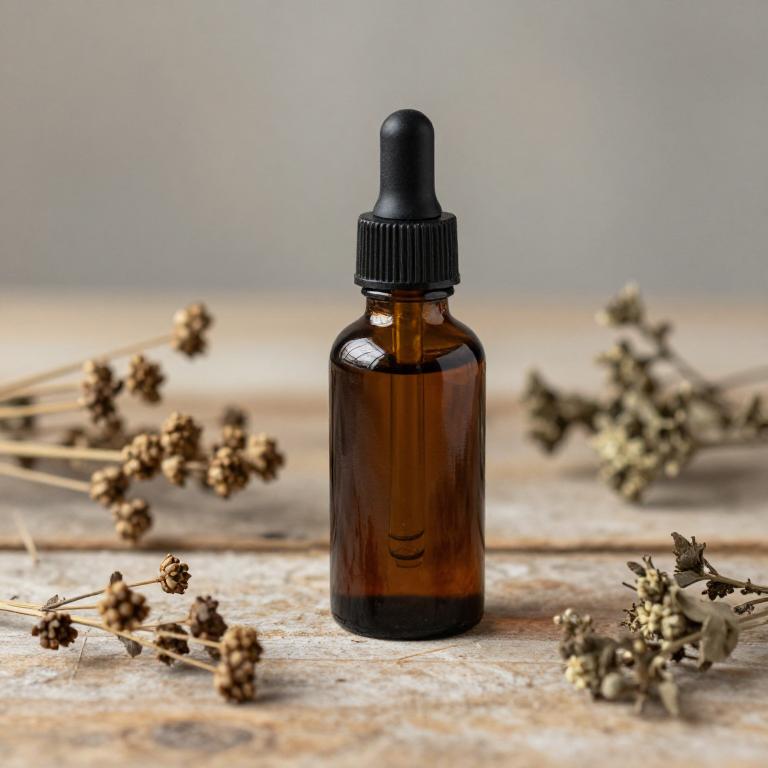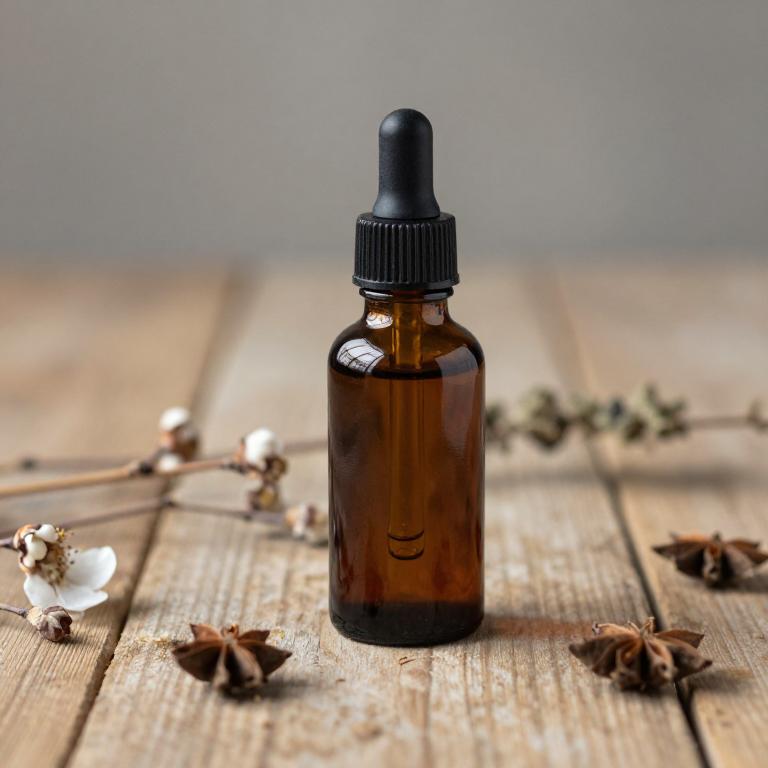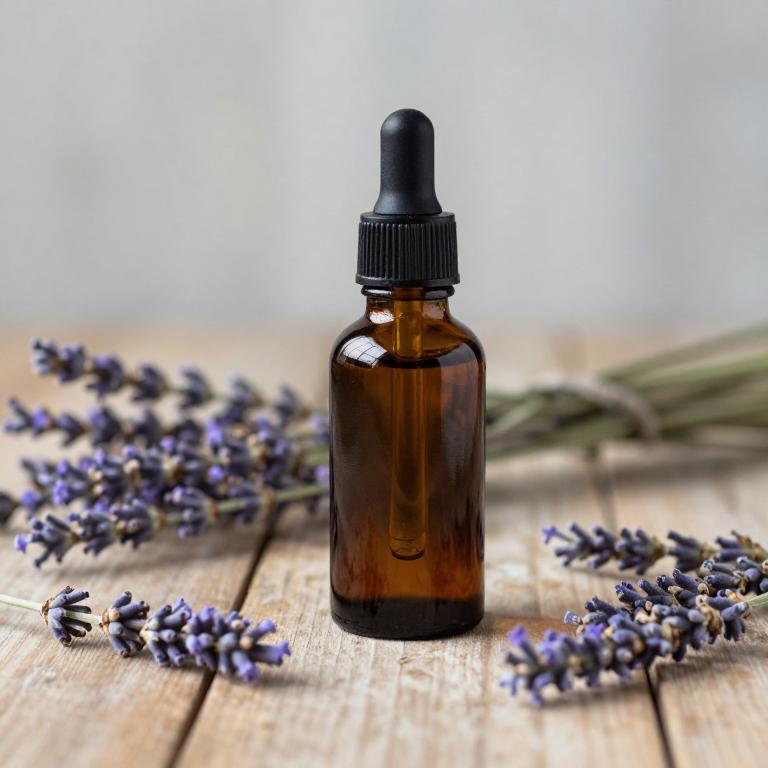10 Best Herbal Tinctures For Dry Hair

Herbal tinctures are concentrated liquid extracts made from dried herbs, often used to nourish and strengthen dry hair.
These tinctures can be applied directly to the scalp and hair to improve moisture retention and promote healthy growth. Common herbs like nettle, chamomile, and rosemary are known for their soothing and revitalizing properties. They can help reduce frizz, enhance shine, and restore vitality to damaged or dry strands.
When used regularly, herbal tinctures offer a natural and effective way to care for dry hair without the harsh chemicals found in many commercial products.
Table of Contents
- 1. Field horsetail (Equisetum arvense)
- 2. Stinging nettle (Urtica dioica)
- 3. Rosemary (Rosmarinus officinalis)
- 4. Blessed thistle (Cnicus benedictus)
- 5. Yarrow (Achillea millefolium)
- 6. St. john's wort (Hypericum perforatum)
- 7. Thistle (Silybum marianum)
- 8. European plum (Prunus domestica)
- 9. English lavender (Lavandula angustifolia)
- 10. Chaste tree (Vitex agnus-castus)
1. Field horsetail (Equisetum arvense)

Equisetum arvense, commonly known as field horsetail, is a herb rich in silica, which is believed to strengthen hair and improve its overall health.
Herbal tinctures made from Equisetum arvense are often used to support hair growth and enhance shine, particularly for individuals with dry or brittle hair. These tinctures can be applied topically to the scalp or diluted and used as a rinse to nourish the hair shaft and promote moisture retention. Due to its high silica content, Equisetum arvense tinctures are thought to help repair damaged hair and increase its resilience.
However, it is important to consult a healthcare professional before using these tinctures, especially if you have existing health conditions or are taking other medications.
2. Stinging nettle (Urtica dioica)

Urtica dioica, commonly known as stinging nettle, is a powerful herb that has been traditionally used to promote hair health, including for dry hair.
When made into a tincture, it provides a concentrated form of its nutrients, such as vitamins, minerals, and antioxidants, which can help strengthen hair follicles and improve scalp health. Applying urtica dioica tincture to the scalp can help increase blood circulation, stimulate hair growth, and reduce dryness by moisturizing the scalp naturally. It is often used in hair rinses or diluted scalp applications to avoid irritation.
This herbal tincture is a natural alternative to chemical treatments, offering a holistic approach to addressing dryness and enhancing overall hair vitality.
3. Rosemary (Rosmarinus officinalis)

Rosmarinus officinalis, commonly known as rosemary, is a versatile herb widely used in herbal tinctures for its beneficial effects on dry hair.
These tinctures are prized for their ability to stimulate blood circulation in the scalp, which can promote healthier hair growth and improve overall hair texture. The essential oils in rosemary tinctures help to moisturize and condition dry hair, reducing frizz and adding shine without weighing the strands down. Regular use of rosemary tinctures can also strengthen hair follicles, making them more resilient to breakage and damage.
As a natural alternative to commercial hair treatments, rosemary tinctures offer a safe and effective way to nourish and revitalize dry, brittle hair.
4. Blessed thistle (Cnicus benedictus)

Cnicus benedictus, also known as St. Benedict's thistle, is a traditional herb used in herbal tinctures to address dry and damaged hair.
Its tinctures are believed to nourish and strengthen hair by promoting scalp health and improving moisture retention. The herb contains essential oils and flavonoids that may help reduce frizz and enhance hair elasticity. When applied topically, these tinctures can condition the hair without weighing it down, making them ideal for those with dry or brittle strands.
Regular use of Cnicus benedictus tinctures may contribute to overall hair vitality and a healthier appearance.
5. Yarrow (Achillea millefolium)

Achillea millefolium, commonly known as yarrow, is a traditional herb that has been used for centuries for its various health benefits, including its potential to support hair health.
When formulated into a tincture, Achillea millefolium can be applied topically to the scalp and hair to promote strength and vitality, particularly for those with dry hair. The tincture is believed to nourish the scalp, improve circulation, and enhance the overall condition of dry, brittle strands. It contains compounds such as flavonoids and essential oils that may help moisturize and protect the hair from environmental damage.
However, it is important to consult with a healthcare professional before use, especially if you have sensitive skin or are pregnant, to ensure safe and effective application.
6. St. john's wort (Hypericum perforatum)

Hypericum perforatum, commonly known as St. John's Wort, is often used in herbal tinctures to promote hair health, particularly for those with dry hair.
These tinctures are believed to nourish the scalp and strengthen hair follicles, helping to reduce dryness and improve overall hair texture. The active compounds in St. John's Wort, such as hyperforin and flavonoids, may have antioxidant and anti-inflammatory properties that support scalp health. When used as a hair rinse or applied topically, the tincture can help moisturize the scalp and enhance the appearance of dry, brittle hair.
However, it is important to consult a healthcare professional before use, as St. John's Wort can interact with certain medications.
7. Thistle (Silybum marianum)

Silybum marianum, also known as milk thistle, is a herbal plant that has been traditionally used for its potential health benefits, including support for liver function.
Herbal tinctures made from Silybum marianum are often used in natural hair care routines to address issues related to dry and brittle hair. These tinctures are believed to nourish the scalp and promote healthier hair growth by improving circulation and providing essential nutrients. The active compound, silymarin, is thought to have antioxidant and anti-inflammatory properties that may help strengthen hair strands.
When used as part of a holistic hair care regimen, Silybum marianum tinctures may offer a natural alternative for those seeking to improve the condition of their dry hair.
8. European plum (Prunus domestica)

Prunus domestica, commonly known as the European plum, is used in herbal tinctures to promote healthy hair growth and improve the overall condition of dry hair.
These tinctures are rich in antioxidants, vitamins, and essential nutrients that help nourish and moisturize the scalp and hair follicles. When applied topically, the tincture can enhance hair elasticity, reduce breakage, and restore natural shine to dry, brittle strands. Its soothing properties also help alleviate scalp irritation, making it a beneficial addition to a hair care routine.
For best results, it is often recommended to dilute the tincture with a carrier oil before use to avoid potential skin sensitivity.
9. English lavender (Lavandula angustifolia)

Lavandula angustifolia, commonly known as English lavender, is widely used in herbal tinctures for its soothing and nourishing properties.
These tinctures are particularly beneficial for dry hair, as they help to moisturize and restore lost hydration without weighing the hair down. The essential oils in lavender tinctures have antimicrobial and anti-inflammatory effects, which can help reduce scalp irritation and dandruff. When applied regularly, lavender tinctures can improve hair elasticity and promote a healthier scalp environment.
Many users find that incorporating lavender tinctures into their hair care routine leads to softer, more manageable hair with a pleasant, calming aroma.
10. Chaste tree (Vitex agnus-castus)

Vitex agnus-castus, commonly known as chasteberry, is a herbal tincture that has been traditionally used to support hormonal balance, which can play a significant role in hair health.
For individuals with dry hair, this tincture may help regulate estrogen levels, potentially improving scalp health and promoting stronger, more hydrated hair growth. Its adaptogenic properties may also reduce stress-induced hair thinning, a common cause of dryness and brittleness. When used as part of a holistic hair care routine, vitex tinctures can complement other natural treatments aimed at restoring moisture and vitality to dry hair.
However, it is important to consult with a healthcare provider before starting any new herbal regimen, especially for those with existing medical conditions or on medication.